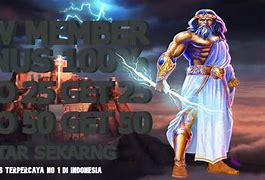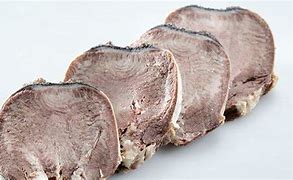
Prometheus and conflicts with humans
When the gods met at Mecone to discuss which portions they will receive after a sacrifice, the titan Prometheus decided to trick Zeus so that humans receive the better portions. He sacrificed a large ox, and divided it into two piles. In one pile he put all the meat and most of the fat, covering it with the ox's grotesque stomach, while in the other pile, he dressed up the bones with fat. Prometheus then invited Zeus to choose; Zeus chose the pile of bones. This set a precedent for sacrifices, where humans will keep the fat for themselves and burn the bones for the gods.
Zeus, enraged at Prometheus's deception, prohibited the use of fire by humans. Prometheus, however, stole fire from Olympus in a fennel stalk and gave it to humans. This further enraged Zeus, who punished Prometheus by binding him to a cliff, where an eagle constantly ate Prometheus's liver, which regenerated every night. Prometheus was eventually freed from his misery by Heracles.[255]
Now Zeus, angry at humans, decides to give humanity a punishing gift to compensate for the boon they had been given. He commands Hephaestus to mold from earth the first woman, a "beautiful evil" whose descendants would torment the human race. After Hephaestus does so, several other gods contribute to her creation. Hermes names the woman 'Pandora'.
Pandora was given in marriage to Prometheus's brother Epimetheus. Zeus gave her a jar which contained many evils. Pandora opened the jar and released all the evils, which made mankind miserable. Only hope remained inside the jar.[256]
When Zeus was atop Mount Olympus he was appalled by human sacrifice and other signs of human decadence. He decided to wipe out mankind and flooded the world with the help of his brother Poseidon. After the flood, only Deucalion and Pyrrha remained.[257] This flood narrative is a common motif in mythology.[258]
The Iliad is an ancient Greek epic poem attributed to Homer about the Trojan War and the battle over the City of Troy, in which Zeus plays a major part.
Scenes in which Zeus appears include:[259][260]
When Hades requested to marry Zeus's daughter, Persephone, Zeus approved and advised Hades to abduct Persephone, as her mother Demeter would not allow her to marry Hades.[261]
In the Orphic "Rhapsodic Theogony" (first century BC/AD),[262] Zeus wanted to marry his mother Rhea. After Rhea refused to marry him, Zeus turned into a snake and raped her. Rhea became pregnant and gave birth to Persephone. Zeus in the form of a snake would mate with his daughter Persephone, which resulted in the birth of Dionysus.[263]
Zeus granted Callirrhoe's prayer that her sons by Alcmaeon, Acarnan and Amphoterus, grow quickly so that they might be able to avenge the death of their father by the hands of Phegeus and his two sons.[264]
Both Zeus and Poseidon wooed Thetis, daughter of Nereus. But when Themis (or Prometheus) prophesied that the son born of Thetis would be mightier than his father, Thetis was married off to the mortal Peleus.[265][266]
Zeus was afraid that his grandson Asclepius would teach resurrection to humans, so he killed Asclepius with his thunderbolt. This angered Asclepius's father, Apollo, who in turn killed the Cyclopes who had fashioned the thunderbolts of Zeus. Angered at this, Zeus would have imprisoned Apollo in Tartarus. However, at the request of Apollo's mother, Leto, Zeus instead ordered Apollo to serve as a slave to King Admetus of Pherae for a year.[267] According to Diodorus Siculus, Zeus killed Asclepius because of complains from Hades, who was worried that the number of people in the underworld was diminishing because of Asclepius's resurrections.[268]
The winged horse Pegasus carried the thunderbolts of Zeus.[269]
Zeus took pity on Ixion, a man who was guilty of murdering his father-in-law, by purifying him and bringing him to Olympus. However, Ixion started to lust after Hera. Hera complained about this to her husband, and Zeus decided to test Ixion. Zeus fashioned a cloud that resembles Hera (Nephele) and laid the cloud-Hera in Ixion's bed. Ixion coupled with Nephele, resulting in the birth of Centaurus. Zeus punished Ixion for lusting after Hera by tying him to a wheel that spins forever.[270]
Once, Helios the sun god gave his chariot to his inexperienced son Phaethon to drive. Phaethon could not control his father's steeds so he ended up taking the chariot too high, freezing the earth, or too low, burning everything to the ground. The earth itself prayed to Zeus, and in order to prevent further disaster, Zeus hurled a thunderbolt at Phaethon, killing him and saving the world from further harm.[271] In a satirical work, Dialogues of the Gods by Lucian, Zeus berates Helios for allowing such thing to happen; he returns the damaged chariot to him and warns him that if he dares do that again, he will strike him with one of this thunderbolts.[272]
Zeus played a dominant role, presiding over the Greek Olympian pantheon. He fathered many of the heroes and was featured in many of their local cults. Though the Homeric "cloud collector" was the god of the sky and thunder like his Near-Eastern counterparts, he was also the supreme cultural artifact; in some senses, he was the embodiment of Greek religious beliefs and the archetypal Greek deity.
Popular conceptions of Zeus differed widely from place to place. Local varieties of Zeus often have little in common with each other except the name. They exercised different areas of authority and were worshiped in different ways; for example, some local cults conceived of Zeus as a chthonic earth-god rather than a god of the sky. These local divinities were gradually consolidated, via conquest and religious syncretism, with the Homeric conception of Zeus. Local or idiosyncratic versions of Zeus were given epithets — surnames or titles which distinguish different conceptions of the god.[29]
These epithets or titles applied to Zeus emphasized different aspects of his wide-ranging authority:
Additional names and epithets for Zeus are also:
The major center where all Greeks converged to pay honor to their chief god was Olympia. Their quadrennial festival featured the famous Games. There was also an altar to Zeus made not of stone, but of ash, from the accumulated remains of many centuries' worth of animals sacrificed there.
Outside of the major inter-polis sanctuaries, there were no modes of worshipping Zeus precisely shared across the Greek world. Most of the titles listed below, for instance, could be found at any number of Greek temples from Asia Minor to Sicily. Certain modes of ritual were held in common as well: sacrificing a white animal over a raised altar, for instance.
With one exception, Greeks were unanimous in recognizing the birthplace of Zeus as Crete. Minoan culture contributed many essentials of ancient Greek religion: "by a hundred channels the old civilization emptied itself into the new", Will Durant observed,[334] and Cretan Zeus retained his youthful Minoan features. The local child of the Great Mother, "a small and inferior deity who took the roles of son and consort",[335] whose Minoan name the Greeks Hellenized as Velchanos, was in time assumed as an epithet by Zeus, as transpired at many other sites, and he came to be venerated in Crete as Zeus Velchanos ("boy-Zeus"), often simply the Kouros.
In Crete, Zeus was worshipped at a number of caves at Knossos, Ida and Palaikastro. In the Hellenistic period a small sanctuary dedicated to Zeus Velchanos was founded at the Hagia Triada site of an earlier Minoan town. Broadly contemporary coins from Phaistos show the form under which he was worshiped: a youth sits among the branches of a tree, with a cockerel on his knees.[336] On other Cretan coins Velchanos is represented as an eagle and in association with a goddess celebrating a mystic marriage.[337] Inscriptions at Gortyn and Lyttos record a Velchania festival, showing that Velchanios was still widely venerated in Hellenistic Crete.[338]
The stories of Minos and Epimenides suggest that these caves were once used for incubatory divination by kings and priests. The dramatic setting of Plato's Laws is along the pilgrimage-route to one such site, emphasizing archaic Cretan knowledge. On Crete, Zeus was represented in art as a long-haired youth rather than a mature adult and hymned as ho megas kouros, "the great youth". Ivory statuettes of the "Divine Boy" were unearthed near the Labyrinth at Knossos by Sir Arthur Evans.[339] With the Kouretes, a band of ecstatic armed dancers, he presided over the rigorous military-athletic training and secret rites of the Cretan paideia.
The myth of the death of Cretan Zeus, localised in numerous mountain sites though only mentioned in a comparatively late source, Callimachus,[340] together with the assertion of Antoninus Liberalis that a fire shone forth annually from the birth-cave the infant shared with a mythic swarm of bees, suggests that Velchanos had been an annual vegetative spirit.[341] The Hellenistic writer Euhemerus apparently proposed a theory that Zeus had actually been a great king of Crete and that posthumously, his glory had slowly turned him into a deity. The works of Euhemerus himself have not survived, but Christian patristic writers took up the suggestion.
The epithet Zeus Lykaios (Λύκαιος; "wolf-Zeus") is assumed by Zeus only in connection with the archaic festival of the Lykaia on the slopes of Mount Lykaion ("Wolf Mountain"), the tallest peak in rustic Arcadia; Zeus had only a formal connection[342] with the rituals and myths of this primitive rite of passage with an ancient threat of cannibalism and the possibility of a werewolf transformation for the ephebes who were the participants.[343] Near the ancient ash-heap where the sacrifices took place[344] was a forbidden precinct in which, allegedly, no shadows were ever cast.[345]
According to Plato,[346] a particular clan would gather on the mountain to make a sacrifice every nine years to Zeus Lykaios, and a single morsel of human entrails would be intermingled with the animal's. Whoever ate the human flesh was said to turn into a wolf, and could only regain human form if he did not eat again of human flesh until the next nine-year cycle had ended. There were games associated with the Lykaia, removed in the fourth century to the first urbanization of Arcadia, Megalopolis; there the major temple was dedicated to Zeus Lykaios.
There is, however, the crucial detail that Lykaios or Lykeios (epithets of Zeus and Apollo) may derive from Proto-Greek *λύκη, "light", a noun still attested in compounds such as ἀμφιλύκη, "twilight", λυκάβας, "year" (lit. "light's course") etc. This, Cook argues, brings indeed much new 'light' to the matter as Achaeus, the contemporary tragedian of Sophocles, spoke of Zeus Lykaios as "starry-eyed", and this Zeus Lykaios may just be the Arcadian Zeus, son of Aether, described by Cicero. Again under this new signification may be seen Pausanias' descriptions of Lykosoura being 'the first city that ever the sun beheld', and of the altar of Zeus, at the summit of Mount Lykaion, before which stood two columns bearing gilded eagles and 'facing the sun-rise'. Further Cook sees only the tale of Zeus's sacred precinct at Mount Lykaion allowing no shadows referring to Zeus as 'god of light' (Lykaios).[347]
Although etymology indicates that Zeus was originally a sky god, many Greek cities honored a local Zeus who lived underground. Athenians and Sicilians honored Zeus Meilichios (Μειλίχιος; "kindly" or "honeyed") while other cities had Zeus Chthonios ("earthy"), Zeus Katachthonios (Καταχθόνιος; "under-the-earth") and Zeus Plousios ("wealth-bringing"). These deities might be represented as snakes or in human form in visual art, or, for emphasis as both together in one image. They also received offerings of black animal victims sacrificed into sunken pits, as did chthonic deities like Persephone and Demeter, and also the heroes at their tombs. Olympian gods, by contrast, usually received white victims sacrificed upon raised altars.
In some cases, cities were not entirely sure whether the daimon to whom they sacrificed was a hero or an underground Zeus. Thus the shrine at Lebadaea in Boeotia might belong to the hero Trophonius or to Zeus Trephonius ("the nurturing"), depending on whether you believe Pausanias, or Strabo. The hero Amphiaraus was honored as Zeus Amphiaraus at Oropus outside of Thebes, and the Spartans even had a shrine to Zeus Agamemnon. Ancient Molossian kings sacrificed to Zeus Areius (Αρειος). Strabo mention that at Tralles there was the Zeus Larisaeus (Λαρισαιος).[348] In Ithome, they honored the Zeus Ithomatas, they had a sanctuary and a statue of Zeus and also held an annual festival in honour of Zeus which was called Ithomaea (ἰθώμαια).[349]
Hecatomphonia (Ancient Greek: ἑκατομφόνια), meaning killing of a hundred, from ἑκατόν "a hundred" and φονεύω "to kill". It was a custom of Messenians, at which they offered sacrifice to Zeus when any of them had killed a hundred enemies. Aristomenes have offered three times this sacrifice at the Messenian wars against Sparta.[350][351][352][353]
Kampf gegen die Giganten
Die Herrschaft der olympischen Götter unter Zeus wurde durch einen Angriff der Giganten bedroht. In der Gigantomachie aber besiegten die Götter die Giganten.
Der Schild des Zeus heißt Aigis oder Ägis (griech. Ziegenfell). Dieser wurde von Hephaistos geschmiedet und wird meist als schuppen- und schlangenbewehrter Halskragen dargestellt. Die Aigis ist Sinnbild der schirmenden Obhut (Ägide) der Götter.
Verheiratet war Zeus mit seiner Schwester Hera, mit der er vier Kinder hatte, Ares, Hebe, Eileithya und Hephaistos. Aber er hatte auch viele Liebschaften, unter anderem mit der Göttin Leto, einer Tochter des Titanen Koios, die ihm Apollon, den Gott des Lichts und der Musik, und Artemis, heilbringende Göttin der Natur und der Jagd, gebar, oder Leda, von der er die Dioskuren Kastor (Castor) und Polydeukes (Pollux) bekam. Daneben war er auch Vater vieler Nymphen, Halbgöttinnen und Sterblicher. Diese Liebschaften waren nie von Dauer, vor allem wegen Heras maßloser Eifersucht. Um die Kinder, die aus diesen Seitensprüngen entstanden waren (unter anderem Herakles und die schöne Helena), kümmerte er sich aber. Die einzige Liebschaft von Dauer war wahrscheinlich die zum Königssohn Ganymed. Dieser war so schön, dass Zeus ihn in Gestalt eines Adlers auf den Olymp entführte. Dort diente er ihm als Mundschenk. Auch die Göttin Aphrodite soll nach Homer eine Tochter von Zeus und der Dione gewesen sein. Geläufiger ist jedoch die Version des Hesiod, nach der sie aus dem Schaum (daher ihr Name, von griech.: aphros=Schaum) entstand, der sich um die abgeschnittenen Genitalien des Uranos im Meer vor Kythera gebildet hatte. Seine Lieblingstochter Athene, die Göttin der Weisheit, entsprang seinem Kopf, nachdem er von Hephaistos geöffnet worden war. Auch andere Götter stammen von ihm ab, wie Dionysos, der Gott des Weines (siehe Schenkelgeburt), die Göttin Iris, die als Botschafterin die Kommunikation zwischen Menschen und Göttern sicherstellte, oder Hermes, der Götterbote und Schutzgott der Kaufleute und der Diebe.
Um Frauen zu verführen, nahm Zeus oft eine andere Gestalt an:
Das älteste und erste in der Antike berühmte Zeus-Orakel befand sich im Eichenhain von Dodona (die Eiche ist ebenfalls der heilige Baum des Zeus). Auch in Olympia gab es ein Zeus-Orakel; hier wurde der Zeus Olympios verehrt. Auf Kreta nahmen Kulte Bezug auf seine Geburt und Kindheit mit Höhlen- und Geburtskulten. Siehe auch Höhle von Psychro, Idäische Grotte.
Verehrt wurde Zeus als Allgott, als denkendes Feuer, das alles durchdringt, als Vater der Götter und Menschen, als Gott des Wetters, als Schicksalsgott usw. Die Epiphanie des Zeus ist stets der Blitz, etwa bei Homer.
Da Zeus als Götterherrscher galt, war sein Kult oft mit Monarchen verbunden. So ist bezeichnend, dass der große Zeustempel in Athen, das Olympieion, während der Tyrannis des Peisistratos begonnen, durch König Antiochos IV. fortgeführt und erst unter Kaiser Hadrian vollendet wurde, während man die Bauarbeiten zur Zeit der attischen Demokratie ruhen ließ.
Die Zeusverehrung erlosch erst am Ende der Spätantike um das Jahr 600 n. Chr.
Je nach Art der Verehrung erhielt Zeus verschiedene Beinamen, etwa:
Later representations
In Neoplatonism, Zeus's relation to the gods familiar from mythology is taught as the Demiurge or Divine Mind, specifically within Plotinus's work the Enneads[373] and the Platonic Theology of Proclus.
Zeus is mentioned in the New Testament twice, first in Acts 14:8–13: When the people living in Lystra saw the Apostle Paul heal a lame man, they considered Paul and his partner Barnabas to be gods, identifying Paul with Hermes and Barnabas with Zeus, even trying to offer them sacrifices with the crowd. Two ancient inscriptions discovered in 1909 near Lystra testify to the worship of these two gods in that city.[374] One of the inscriptions refers to the "priests of Zeus", and the other mentions "Hermes Most Great" and "Zeus the sun-god".[375]
The second occurrence is in Acts 28:11: the name of the ship in which the prisoner Paul set sail from the island of Malta bore the figurehead "Sons of Zeus" aka Castor and Pollux (Dioscuri).
The deuterocanonical book of 2 Maccabees 6:1, 2 talks of King Antiochus IV (Epiphanes), who in his attempt to stamp out the Jewish religion, directed that the temple at Jerusalem be profaned and rededicated to Zeus (Jupiter Olympius).[376]
Situs Zeus Slot 🚀 dari Zeus Slot Pragmatic
Mengenai permainan Zeus Slot ini ditemukan dan dipelopori oleh zeus slot pragmatic ditambah perkembangan teknologi hingga memukau kakek zeus slot jadi terbitlah zeus slot88. Zeus Slot Pragmatic semakin dikenal hingga memiliki pengikut setia di seluruh indonesia.
Jaman kini hampir semua pemain slot atau biasa disebut sebagai slotters sudah pasti mengenal dengan baik tentang petir perkalian 1000 dari kakek zeus slot ini. Tak terhitung jumlah slotters telah merasakan keganasan petir kakek zeus dari zeus slot satu ini, terlebih lagi zeus slot ditemani banyak opsi link zeus slot.
Tersedia Banyak macam permainan slot dari provider pragmatic play akan tetapi slot dengan petir memukau hanya zeus slot game, mengapa demikan? jelas karena zeus slot memiliki perkalian yang tidak kaleng-kaleng dengan perkalian fantastis maka menjadi milyarder dari zeus slot bukanlah hal mustahil untuk dilakukan apalagi kali ini zeus slot diperbaharui dengan mode zeus slot demo sehingga slotters dapat bebas melakukan rekonstruski sebelum bermain zeus slot.
Zeus in den bildenden Künsten
Die wohl bekannteste Darstellung des Zeus ist die heute nicht mehr erhaltene Kolossalstatue des Phidias in Olympia. Weiterhin gibt es zahlreiche Darstellungen von Zeus als Krieger mit dem Attribut des Blitzbündels oder des Zepters, thronend als Göttervater.
Oft wurden auch die zahlreichen Mädchen- und Frauenraube des Zeus dargestellt, wie zum Beispiel der Raub der Europa und ähnliche, aber auch der des Knaben Ganymed. Seine Attribute sind Zepter, Adler, Blitzbündel, Helm, bisweilen auch der Eichenkranz, seine Begleiterin manchmal die Siegesgöttin Nike[26].
Aus Wiktionary, dem freien Wörterbuch
If you are 18 years or older or are comfortable with graphic material, you are free to view this page. Otherwise, you should close this page and view another page.
Do-Gooder Full Name ZeusJupiter (Roman name)Jove Alias(es) The Sky-FatherThe God-FatherKing of OlympusThe High-GodThe Most HighHighestKing of Olympus Occupation King of OlympusKing of the GodsGod of the SkyGod of Lightning and ThunderGod of Storms Powers / Skills Supreme God PhysiologyPower ManipulationWorld ManipulationEssokinesisElectrokinesisAerokinesisAtmokinesisShapeshiftingImmortalityCharismaCombat proficiencyAegis Hobby Having SexThrowing PartiesDisguising Himself as MortalsCheating On His WifeMaking Thunderstorms Goals Maintain his rule over his Olympian gods and the cosmos.Indulge his vices (both ongoing). Enemies CronusHostile TitansGiantsTyphonEchidna Type of Hero Anti-Heroic Deity
Jupiter (Roman name)Jove
The God-FatherKing of OlympusThe High-GodThe Most HighHighestKing of Olympus
King of the GodsGod of the SkyGod of Lightning and ThunderGod of Storms
Supreme God Physiology
Power ManipulationWorld ManipulationEssokinesisElectrokinesisAerokinesisAtmokinesisShapeshiftingImmortalityCharismaCombat proficiencyAegis
Throwing PartiesDisguising Himself as MortalsCheating On His WifeMaking Thunderstorms
Maintain his rule over his Olympian gods and the cosmos.
Indulge his vices (both ongoing).
Hostile TitansGiantsTyphonEchidna
Zeus is the Greek God of lightning, thunder and storms in Greek mythology and he became the king of the Olympian pantheon. Zeus is renowned for being both a scoundrel and a noble warrior king, making him one of the ur-example anti-heroes.He is the main protagonist in the Greek Mythology.
In the Shazam miniseries, he was voiced by the late Kevin Conroy.
In the 2009 Wonder Woman movie, he was voiced by the late David McCallum.
Gaea, Uranus, Kronos, Rhea, and the Titans[]
The story of Zeus starts with the union of his grandparents, Gaea and Uranus, the earth and sky. Gaea bore many children from her union with Uranus, the Titans, giant divine beings of considerable beauty. Gaea also gave birth to the more monstrous one-hundred armed giants called Heka-Gigases and the one eyed giants called Cyclopsi. Though Gaea loved all her children Uranus was ashamed of the more monstrous of his children feeling they were not worthy to walk upon his beautiful wife and so he placed the Heka-Gigases and Cyclopsi in the nether-pits of Tartarus deep bellow the earth. Gaea was heartbroken and enraged so she carved a scythe of her very bone that would be able to cut Uranus himself, she offered it to whichever one of her children was willing to face their father and until he agreed to free the Heka-Gigases and Cyclopsi. The youngest of the Titans, Kronos, Titan of time, agreed to take up arms against his father. Kronos fought Uranus however he made no threats or demands and instead completely deposed his father, castrated him, forced him to surrender his power, and banished him. Kronos never freed his sibling from Tartarus either and so he earned the spite of Gaea, but under his rule the Titans became the first gods of mankind.
Though Kronos dethroned and castrated his father, before Uranus departed, he said one of Kronos's own children would surely do the same to him. Later the Titan of foresight, Prometheus, prophesied that indeed one of Kronos's own children would depose him. Kronos became fearful of his rule and when his wife/sister Rhea gave birth to their first child, Hestia, Kronos ate her rather than risk her growing up to depose him. Rhea would become pregnant and give birth five more times, Poseidon, Hades, Demeter, and Hera all met the same fate as Hestia. On Rhea's sixth and final pregnancy she could no longer bear to see her child killed and knew she would not be able to implore Kronos' mercy, so she made arrangements to have her son Zeus spared. Rhea warped rocks in swaddling cloths and let Kronos eat it thinking it was baby Zeus. Rhea had spirited Zeus off to be raised by her mother Gaea, the earth, Uranus' widow. Of course, Gaea was upset about Kronos dethroning her husband and banishing him and without keeping his word to free his siblings, so she was more than happy to support the young god prophesied to dethrone Kronos. Gaea raised and protected Zeus on a small island of Crete, she kept him hidden from Kronos in thick mists that surrounded the island and had nymph artisans working on it all day and night so the clanging of the shields by the Curetes would drown out young Zeus whenever he cried. Zeus was also cared for by the Curetes with the milk of the goat Amalthea and the bees in the cave. Gaea told Zeus of what his father had done to her husband, children, and his siblings grooming Zeus to one day take his revenge on Kronos. Gaea made Zeus swear that once he freed his siblings he would also free her children still sealed in Tartarus.
When Zeus came of age he set out to confront Kronos, before Zeus returned home he met Metis, Oceanid and Titaness of prudence. Zeus fell in love with Metis and they became lovers and before long Metis was conspiring with him to overthrow Kronos. Metis gave Zeus poison and gave it to Kronos, while Kronos was reeling from the effects of Metis' poison Zeus arrived and fought Kronos. By some accounts Zeus carved open Kronos' stomach and freed his siblings, while other accounts say that the poison induced vomiting and during the confrontation with Zeus Kronos vomited up all five of Zeus's siblings and the rock3, either way Zeus's siblings were all freed from their father's stomach and joined him in the fight. Kronos saw he was outmatched and called for the the Titans to protect him and attack the gods, thus began the "Titanomachy" or Titan God War.
Some of the Titans joined Zeus and the gods like Prometheus, who foresaw Zeus would win and wanted to be on the winning team, he also convinced his brother Epimethius, Titan of antiquity to join Zeus. Zeus and his siblings also garnered the attention of Hecate, Titaness of witchcraft who joined the gods having grown tired of Cronus' tyranny. While the other gods were still fighting the Titans Zeus freed the Heka-Gigases and Cyclopsi who eagerly joined the fight against Cronus. Eventually the Gods won over the Titans, Zeus imprisoned most of the defeated Titans in Tartarus, except for the Titan of strength Atlas, who Zeus punished by turning his strength against him by forcing him to hold up the sky. Of course Zeus did not punish the Titans who had joined his side, leaving Prometheus Epimethius, Hecate, Rhea, Metis, Leto and the monstrous titans. Zeus assumed the new throne as king of the heavens and the new guardian of mortal-kind. Zeus set up a great palace on top of Mont Olympus he made Metis his first wife and ruled the world from mountain tops.
In this new age man-kind would become the dominant mortal life form by being given the gift of intellect but they would also be given sin and discord. Zeus first split up the rule over the world with his brothers, his oldest brother Poseidon, god of the Sea was given the vast oceans to rule once he rested control of them from Gaea's second husband Nereus. Hades, god of wealth was given the Underworld to rule where he could keep an eye on the deepest gates of Tartarus seeing to it they were never opened and establishing a kingdom of the departed souls. Zeus himself created his palace on Mount Olympus and established eleven other positions for other gods as his vassals, Zeus and his eleven brethren were refereed to as the Twelve Olympians commonly. The Twelve Olympians shared in the powers of the Titans that Zeus had inherited and each among them was given a formal throne in the meeting halls of Olympus. Not all Greek gods could claim to be one of the Twelve Olympians but the ones that did were considered the most important. Some gods such as Pan coveted the position of being one of the twelve, others like Hades openly refused to accept the title, considering the power not worth being subject to Zeus' authority. Zeus himself was firmly in control of the Twelve Olympians and could retract their empowered abilities at a moment's notice if they turned on him, this however still made his five siblings a substantial threat since all had claimed power from the titan' personally.
Zeus feared he would be deposed by his first child just as his father and grandfather had so shortly after she became pregnant Zeus would divorce Metis and began to court his sister Hera. Hera would become Zeus' queen despite being his second wife however Metis was made Zeus' personal adviser. Though Metis and Zeus had an easy divorce Prometheus warned Zeus that the child would be greater than him. Zeus was afraid of his child but did not wish to harm Metis partly because of their history and partly because he depended on her as his adviser but Zeus eventually found a way to neutralize Metis without sending her to Tartarus. After much thought one day Zeus challenged Metis to a game they played where each god would try to turn into a smaller animal than the other, Metis won the game by eventually turning into a may-fly, Zeus congratulated her and then swallowed her whole. Metis flew into Zeus' head and was absorbed into his brain thus Zeus always had Metis's sound advice and as part of him he never had worry about the child being born...or so he thought. One day Zeus was plagued by terrible headaches. Though he tried to ignore it at first the headaches eventually became so bad he doubled over in pain. His by then son Hephaestus cracked open Zeus' head to release the pressure and out emerged a fully grown and clothed goddess, Metis' daughter, Athena who had grown in Zeus' head even as her mother was becoming part of his brain. Athena had been clothed by Metis and brought up in Zeus' subconscious but eventually grew too big to be contained within. To Zeus' surprise Athena pledged her loyalty to her father rather than challenging him, for this Athena became Zeus' favorite child. In time Athena was praised even more than Zeus and became a major goddess through-out Greece despite being a second generation god. In this way Prometheus' prediction came true for though greater than Zeus, Athena maintained loyalty to her father and in this way the cycle of ascension among the gods came to a conclusion.
By the time Athena was born Zeus had already had two sons and a daughter via his union with Hera. The first was Hephaestus, the god of smithing the second was Ares, god of war. Ares was well liked by his mother originally, Hephaestus was born considerably ugly to the point where he frightened Hera when she went to hold him and tossed him from Olympus to earth. The fall crippled Hephaestus from a young age. Hephaestus spent his years trying to win his mother's affections and became a smith crafting her perfect jewelry. By extension this also meant Zeus would be given similar gifts. Once an adult Hephaestus began supervising the Elder Cyclopi who made Zeus's lightning bolts. For his devotion Zeus gave Hephaestus one of the twelve thrones of Olympus. Ares had also won himself a throne, partially because Hera had insisted that one of their only legitimate children be among the twelve Olympians but also because Ares had enthusiastically stirred-up and resolved several wars in the name of his parents. Zeus and Hera's daughter was Eileithyia, goddess of mid wives. Eileithyia was less worshiped than her siblings and so Hera made her a totem in her temples thus Eileithyia was worshiped by association with Hera. Though Eileithyia was not prominent enough to earn herself a spot as one of the twelve Olympians she became known through-out Greece due to her mother's influence.
Zeus would adopt the goddess Aphrodite as his daughter. Aphrodite's birth has two conflicting origins' one states that when Cronus took over he castrated Uranus and threw his manhood into the sea- this would result in Aphrodite manifesting from it's remains. Another myth states that Aphrodite was the unclaimed daughter of Nerius, the sea god. Either way Aphrodite first came to the world from the sea, walking out of it completely naked. She was full grown by the time she emerged from the ocean and Zeus was king by then. Zeus spotted Aphrodite and not wishing for their to be any ambiguity over her lineage decided to welcome her into the family. Aphrodite was the goddess of beauty and often associated as goddess of love and sex as well. Zeus would also give birth to the goddess Persephone with Demeter. As the myth goes Poseidon demanded he be permitted to court Hestia as Zeus had done to Hera, Zeus conceded and began pairing his remaining siblings Hades and Demeter, though the two seemed not to like each-other. When Poseidon returned saying Hestia wished to remain a virgin Zeus sided with Hestia that her virginity was hers to keep, Poseidon, still very upset then switched his interests to Demeter and demanded her hand instead. Zeus agreed but to get back at his entitled brother Zeus decided to get Demeter pregnant while he was still trying to woo her. Demeter, being far more open with sex than she was with marriage, had no issues sleeping with Zeus though Poseidon was wooing her and Zeus was already married. Poseidon's interest in Demeter waned long before he found out she was pregnant but Demeter was more than happy to raise the child as a single mother. Zeus had pledged Persephone's hand to Hades to make-up for humoring Poseidon by giving away Hades' intended fiance'. Though Demeter raised Persephone herself Zeus still checked in on and looked after his daughter.
Zeus would take on the titaness, Leto, as lover, however Hera was no longer willing to humor such activities. Metis was married to Zeus before her; Demeter was never sexually restrained by concepts like marriage, had taken favors from Zeus covertly and did not associate sex with love; But with Leto Hera saw a disturbing pattern and chased Zeus for his perspicuity. According to early stories by the time Hera found out Leto and Zeus were an item Leto was pregnant. Zeus fled his wife's wrath and before leaving to chase him Hera cursed Leto not to be able to give birth on Olympus or in any earthly society. Zeus spent months fleeing Hera, changing shape by assuming the forms of storms, the elements, animals and even humans in his attempts to lose her. During this time, Leto became more and more pregnant but was not able to give birth. Zeus raised an island from the sea and sent Eileithyia to meet Leto there to help her give birth. Since the land was newly formed technically it was not part of any mortal realm and thus Hera's decree did not need to apply. Eileithyia, wishing to release Leto's pain used the loop-hole her father had created and helped Leto give birth to the twins Apollo and Artemis. Once Hera gave-up the chase Leto bought Apollo and Artemis to meet their father. Hera refused to permit Leto to take a seat on Olympus, but Zeus said instead he would allow her children too take their thrones there. Though Hera remained bitter about Leto, both Apollo and Artemis were very protective of their mother and Hera ended up needing to hold her tongue in the halls of Olympus to maintain harmony. Zeus was said to be very loving toward Apollo and Artemis and gave them both bows and taught them to hunt from a young age to be great monster slayers like him.
Zeus Slot 🚀 Situs Zeus Slot by Kakek Zeus Slot Gacor 2024
Hai Para Penggemar slotters semua, katakan selamat tinggal pada rungkad sebab kini tiba saatnya zeus slot gacor ampuh tanpa main-main dipersembahkan langsung oleh kakek zeus yakni slot zeus gacor 2024 lengkap menyertai semua cucu slotters tidak lupa kakek zeus meneritkan zeus slot demo kepada semua slotters abadi.
Era Globalisasi sekarang permainan slot merupakan suatu agenda tak terlupakan bagi banyak kalangan masyarakat, maka dari itu zeus slot hadir dengan membawa sejumlah hadiah petir perkalian terbesar dari kakek zeus slot gacor 2024. Daftar sekarang zeus slot di situs zeus slot lengkap slot demo zeus 1000.
Mengulik Tipis Tips & Trik Bertemu Kakek Zeus Slot ⚡
Kakek Zeus Slot umumnya agak jarang ditemukan baik dari zeus slot demo maupun permainan nyata akan tetapi di blog ini akan kami beritakan beberapa tips tipis agar dapat bertemu kakek zeus slot pragmatic. Simak dan Pahami cara dibawah ini:
Zeus in der griechisch-römischen Philosophie
Zeus spielt auch eine wichtige Rolle in der Philosophie der Antike. Die Orphiker sahen Zeus als den Weltgrund an,[23] der Platoniker Xenokrates identifizierte Zeus mit dem kosmischen Nous,[24] in der Philosophie der Stoa wurde Zeus als die Urkraft oder kosmische Vernunft aufgefasst.[25]
Perhatikan Jam Gacor Zeus Slot
Bagi pro player slotters tentu saja bermain slot memiliki jam gacor variatif, untuk menemukan jam gacor zeus slot akurat dapat dilakukan pengecekkan pada rtp zeus slot. Jadi ada baiknya untuk set timer jam gacor zeus slot sebelum bermain.























